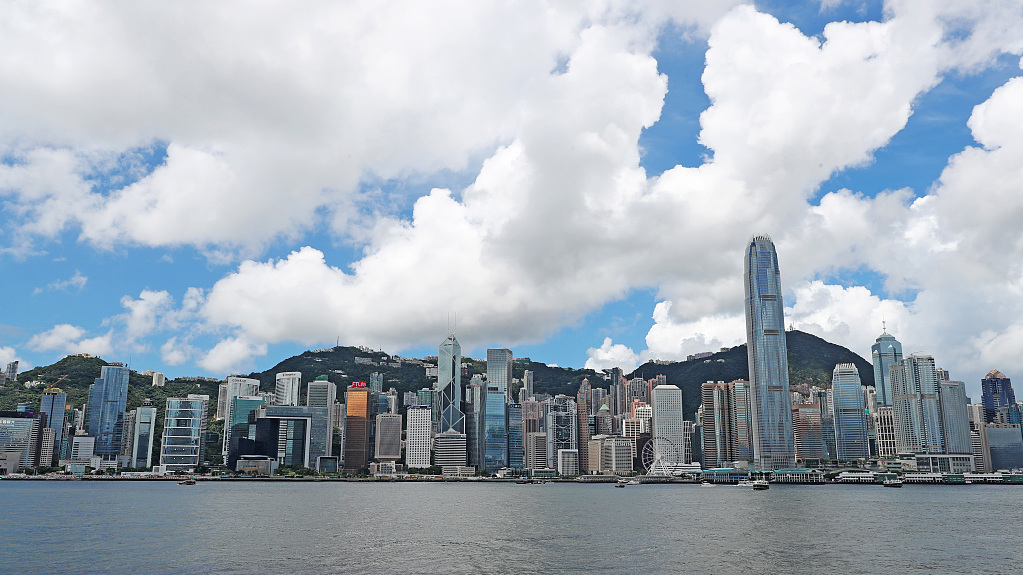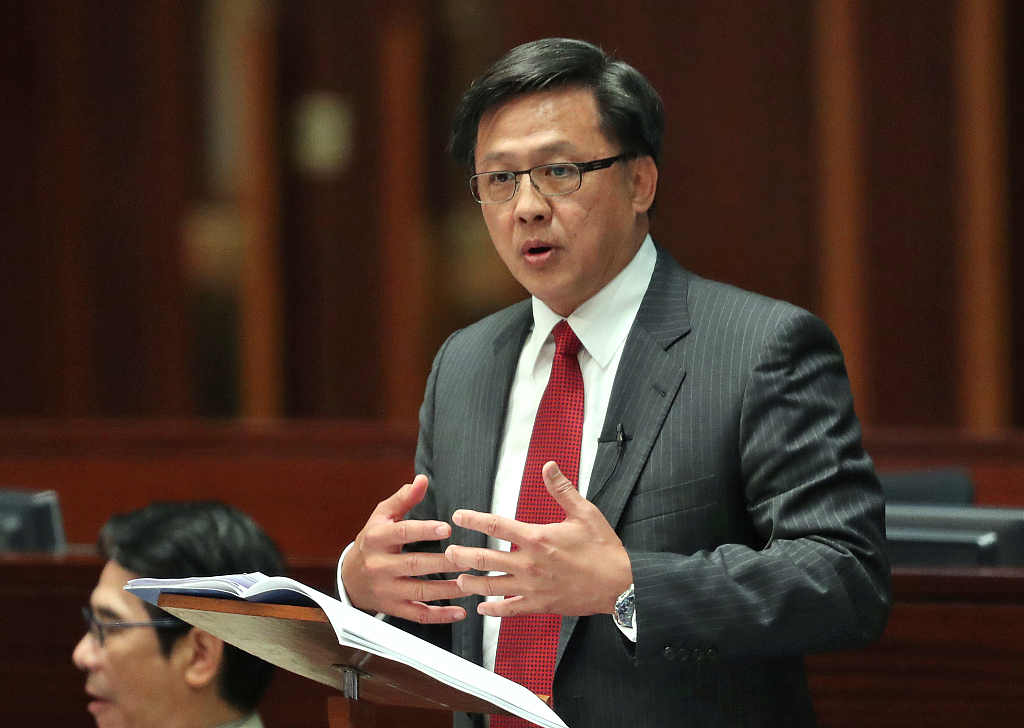
Editor's Note: Huang Jiyuan is an opinion editor with CGTN Digital. This article is based on his interview with Gu Minkang, professor at the School of Credit Risk Management, Xiang Tan University, vice chairman of Hong Kong Basic Law Education Associate, and member of the Chinese Association of Hong Kong & Macao Studies. The article does not necessarily reflect the views of CGTN.
Hong Kong has just experienced another day of violence and chaos. Junius Ho, a lawmaker running for re-election in the district council, was stabbed in the chest at his campaign event on Wednesday. After Ta Kung Pao posted the video of the incident on Facebook, the date of publish was changed to Tuesday by an unknown party, which led to an outburst of rumors and accusations asserting that the incident was an orchestrated act. The rising security concerns and contradictions in public discourse are rattling a city that is trying to heal.
Targeting lawmakers is a means to an end for the violent protesters, according to Gu Minkang, professor at the School of Credit Risk Management, Xiang Tan University, vice chairman of Hong Kong Basic Law Education Associate, and member of Chinese Association of Hong Kong & Macao Studies.
Professor Gu said the district council election has always been one of their main targets. Violent protesters, by deliberately using scare tactics like damaging government properties and ripping off banners, try to create an environment of terror. They hope that, under this kind of environment, candidates who share their views could win in the upcoming district council elections.
How could they win? It might be normal to suggest that their terror campaign would drive people to vote for their opposition. Wouldn't people vote for the non-violent side to restore peace to their city?
Yes, the violence could turn off some supporters. But Professor Gu believes this doesn't guarantee there will be more votes for the other side.

Lawmaker Junius Ho Kwan-yiu was stabbed in the chest during a campaign event on Wednesday, November 6, 2019. /VCG Photo
Lawmaker Junius Ho Kwan-yiu was stabbed in the chest during a campaign event on Wednesday, November 6, 2019. /VCG Photo
Unrest has been going on for five months. The sheer length of it means the protesters do not lack supporters and backups. They do have a sizable following within the general public, especially the younger generation. And as young adults are a major force in electoral politics, the prospect of electing many of their candidates to positions of power becomes greater.
Then enters the effect of the violence. Professor Gu said that although it might not earn violence protesters more supporters in the election, it deters people from voting. The longer the unrest drags on, the more people would choose to remain neutral by not voting for any party. This increases the chances for candidates aligned with protesters to win.
As for the problematic Facebook, rumors, and accusations, Professor Gu is not particularly optimistic about the prospect of solving them in the short-term. Any sign of interfering in public discourse could instigate more protests. Even with the Emergency Regulations Ordinance invoked, the government's power to combat rumors and false information is restricted.
This is exacerbated by reporters and journalists who claim to be objective, but in fact try to push their own agenda in the information they give to the public. Professor Gu said many of the reporters have lost their neutrality in their reporting throughout the five months of protests.
It is important for the press to ensure "public has the right to know" is not just an empty slogan. But it is never in their job description to publicize their own political believes at official press conferences or on the ground at protest sites. Reporting should be done when the police's right to law enforcement is respected. Law enforcement should not give way to the convenience of reporting.
The only way to resolve this is for the government to legislate on such issue, Professor Gu asserted. Even though one might say tech companies, social media, and the public have the responsibility to be cautious and confirm the validity of the information, ultimately, it needs actions from the government. And the government could only tackle these problems when it is able to legislate, and when peace and order are restored.
(If you want to contribute and have specific expertise, please contact us at opinions@cgtn.com.)